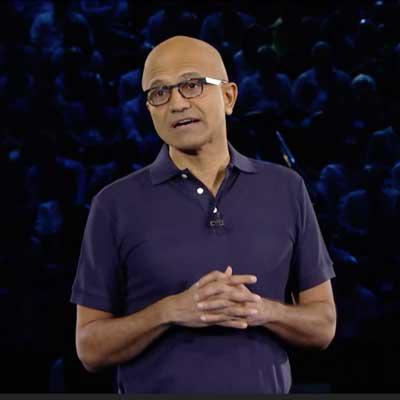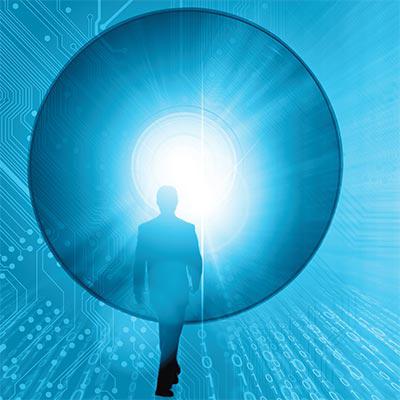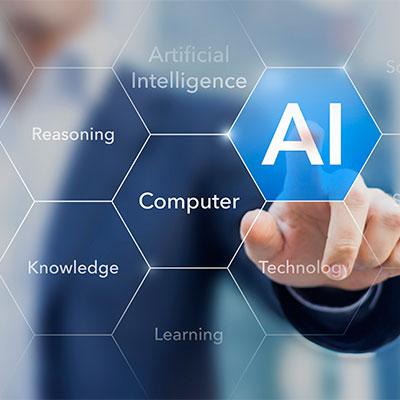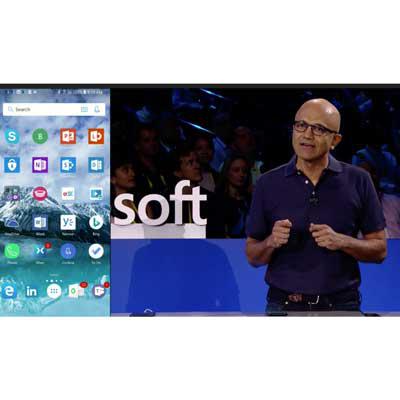Satya Nadella's 5 Most Important Statements At Microsoft Inspire 2018

The Future Of Microsoft
Microsoft CEO Satya Nadella took the stage Wednesday at the Inspire 2018 partner conference to an extended round of applause, before he'd even said a word. The past year saw Microsoft prioritize the aligning of its sales teams with the needs of partners -- with the result being a surge in growth. Executives shared estimates this week that partners generated nearly $1 trillion in revenue over the past 12 months through working with Microsoft solutions. But that's just the start, Nadella said during his Inspire keynote Wednesday. "As we look forward, the opportunity for us to serve our customers in this new era of the intelligent cloud and the intelligent edge is far greater," Nadella told the 16,000 partners gathered at the conference in Las Vegas. "I've lived through the client-server, the web, mobile, cloud. But what we're going to see going forward is going to be even more profound."
What follows are five key topics discussed by Nadella during his keynote at Microsoft Inspire 2018.

Intelligent Cloud, Intelligent Edge
Nadella said one of his aims is to "express how we do things very differently" as a result of the move into the new era of "intelligent cloud and intelligent edge." What is common across the solution areas that Microsoft is focusing on -- including modern workplace, business applications, applications/infrastructure and data/AI -- is "this profound shift to a new way of doing things," he said. "Ultimately, though, we've got to measure ourselves not by technology for technology's sake, but [by] how are we empowering people? How are we helping organizations with their digital transformational outcomes? That's what this is all about." The "paradigm shift" that's coming, Nadella said, is "probably bigger than anything that's come before."
In part that's because "there are three things that are happening simultaneously," he said. "At the experience layer, we are moving to this people-centered experience. That means we're going to, in some sense, de-couple the experience from the devices"
In addition, "we're going to infuse everything with AI. It's going to have perception capability, language capability, and autonomy that's going to be built into the applications going forward," Nadella said. "And to power all of this, the one thing that's needed is a ubiquitous, distributed computing fabric."
Azure
Microsoft's vision for this sort of computing fabric starts with the Azure cloud platform, which now has 54 data center regions (and recently expanded to its first underwater data center). "We are very, very excited about [questioning] the conventional wisdom of what is a data center," he said. "Of course, computing needs will go far beyond the data center. Essentially, wherever there is data, compute will migrate to data. And so we are going and taking Azure to Azure Stack, to Azure IoT Edge, to Azure Sphere. This is that one ubiquitous, distributed computing fabric. One programming model that is event-driven, serverless, so you can write an application that truly works across all of this."
Having all of these pieces, Nadella said, "I believe is the biggest unique thing that this ecosystem has as the world gets embedded with computing. Every use case out there is going to be powered by something like this."
The Azure Stack hybrid cloud platform has seen "incredible customer demand" since its debut in July 2017, Nadella said during a quarterly earnings call in January. Meanwhile, Azure Sphere -- a solution for securing the billions of microcontroller unit (MCU) devices in existence, which Microsoft unveiled in April -- is already "being used across a lot of very different customers," Nadella said during his keynote.

Artificial Intelligence
During his Inspire keynote, Nadella placed a special focus on artificial intelligence technologies. Recent advances in AI have been "pretty stunning" in terms of how they're reaching parity with human perception and language capabilities, he said. However, "it's not about celebrating these breakthroughs for Microsoft Research. Our collective objective is to take these breakthroughs and democratize them, with the tooling we create, and with the expertise and the skill set and the services that you provide," Nadella told partners.
Ultimately, the potential is "for us to be able to turn every industry into an AI-first industry -- whether it's retail or health care or agriculture. We want to be able to make sure that they can take their data, in a secure, privacy-preserving way, [and] can work that into AI capabilities that they get the return on."
Nadella cited examples such as a project by solution provider BlueMetal to reduce costs at hospital operator Steward Health Care using AI and machine learning, as well as efforts at Toyota to build a fully autonomous warehouse. Microsoft is working at "democratizing autonomy into a set of toolkits that everyone here can use," he said. "Autonomy is not just about a few self-driving projects. This is about autonomy everywhere."

Microsoft 365
Nadella dedicated a portion of his keynote to demonstrating the way his own workday revolves around the Microsoft 365 suite, which includes Office 365 productivity apps and Windows 10. Along with using Outlook (which Nadella described as "the best Gmail client"), he emphasized how the Teams app has come to dominate his daily collaboration with his inner circle. Microsoft has been heavily promoting Teams, a competitor to Slack, and launched its first free version of Teams last week in connection with Inspire. Nadella also pointed to his own use of the Cortana virtual assistant -- which has a "commitments" feature that reminds him of things he's committed to doing, but hasn't put into a to-do list. Commitments is "one of the features that saves me every day," he said.
For partners, Microsoft 365 is a way to help customers transition into a paradigm of "people-centered experiences" rather than device-centered experiences, Nadella said. "The opportunity for everyone here is to take Microsoft 365 and apply it for cultural transformation in large enterprises [and] for productivity in small businesses. To be able to really do industry-specific workflows in health care, manufacturing, financial services. To be able to take it to first-line workers. To extend to business process with Dynamics 365. That's the opportunity that everyone in this room has with Microsoft 365 and Dynamics 365."
Business Applications
Dynamics 365 -- Microsoft's combination cloud CRM and ERP system -- saw 65 percent growth during the first three quarters of the company's fiscal 2018 (Microsoft's fourth-quarter results come out Thursday). That makes it one of Microsoft's fastest-growing businesses, even faster than Office 365. Microsoft executives this week announced a number of new ways they're working to assist partners with getting involved with Dynamics 365, as well as with other business applications such as Power BI data visualization. During his Inspire keynote, Nadella said that Power BI is "one tool that's changed the culture inside the company," thanks to the way that it helps bring the focus to leading indicators rather than lagging indicators.
"When you think about business process in particular, the one thing that is going to be true is more things are going to be digitized. As we see the power of IoT and other tools that are going to be used, every workflow is going to be automated," Nadella said. "That means we need to have a set of tools that allow us to reduce the total cost of these customizations and automation. And now we've built a complete new app platform, which I think represents a tremendous opportunity for everyone in the room -- Power BI, PowerApps and Flow. The combination of it is just going to change how applications are built and deployed."